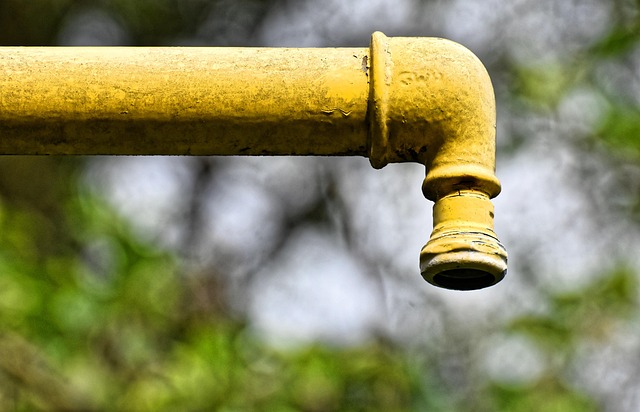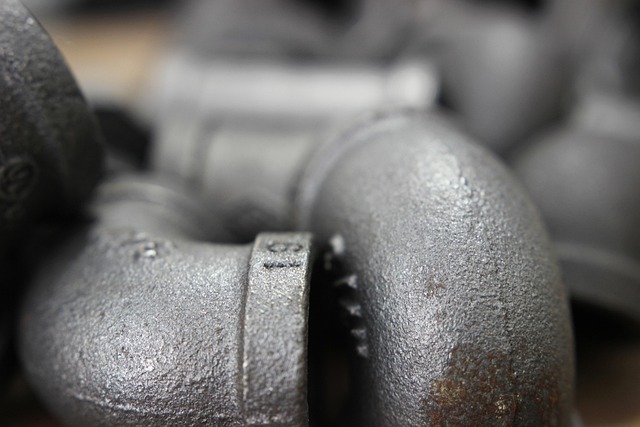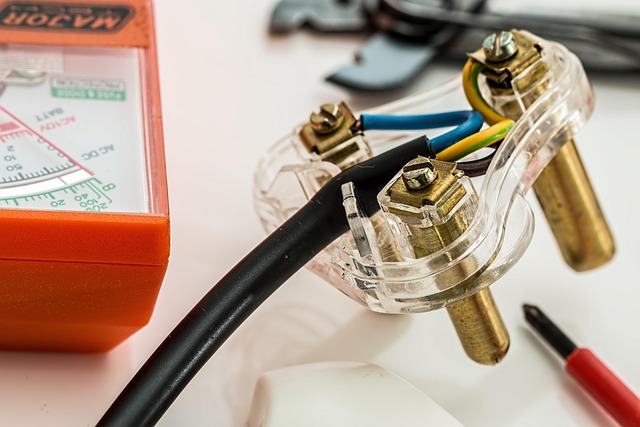Category: water heater replacement seattle
Water Heater Replacement Seattle: A Comprehensive Overview
Introduction
In the ever-evolving landscape of home comfort and energy efficiency, water heater replacement stands as a crucial aspect of modern plumbing systems, particularly in cities like Seattle. This article delves into the intricacies of water heater replacement specific to Seattle, exploring its significance, global impact, technological advancements, economic implications, and future prospects. By examining these facets, we aim to provide homeowners, professionals, and policymakers with a comprehensive understanding of this vital component of sustainable living.
Understanding Water Heater Replacement Seattle
Definition and Core Components
Water heater replacement Seattle refers to the process of installing a new water heating system within the city’s residential or commercial buildings. This involves replacing outdated or inefficient water heaters with modern alternatives designed to meet contemporary energy standards and user demands. The core components of a water heater include the tank (either storage or tankless), heating element(s), insulation, and various control mechanisms.
Historical Context and Significance
The concept of water heating has evolved significantly over the years. From early days relying on open fires to heat water, technology has advanced to include electric, gas, and oil-fired heaters. Seattle, being a forward-thinking metropolis, has embraced these advancements, particularly in recent decades, to promote energy conservation and reduce environmental impact. Water heater replacement is not merely a technical upgrade but a strategic move toward sustainable living, reflecting the city’s commitment to ecological stewardship.
Fit within the Broader Landscape
Within Seattle’s context, water heater replacement plays a pivotal role in several key areas:
- Energy Efficiency: Modern water heaters are designed with energy efficiency at their core, utilizing advanced insulation and heating technologies to minimize energy waste.
- Environmental Sustainability: By replacing older models, Seattle residents contribute to reduced greenhouse gas emissions and lower carbon footprints.
- Cost Savings: Efficient water heaters can lead to substantial long-term savings on utility bills, making them a smart investment for homeowners.
- Home Comfort and Safety: Improved heating systems enhance overall home comfort during cold Seattle winters while also incorporating safety features like temperature controls and anti-scald mechanisms.
Global Impact and Trends
International Influence
Water heater replacement is not limited to Seattle; it is a global phenomenon, with various regions adopting unique approaches based on their climate, infrastructure, and energy landscapes. The global water heating market has witnessed significant growth, driven by:
- Urbanization: Rapid city growth in developing nations increases the demand for efficient water heaters.
- Regulatory Push: Many countries have implemented stringent energy efficiency standards, incentivizing the adoption of modern water heating systems.
- Environmental Awareness: Global efforts to combat climate change have elevated the importance of sustainable practices, including water heater replacement.
Key Trends Shaping Trajectories
Several trends are shaping the future of water heater replacement globally:
| Trend | Description |
|---|---|
| Renewable Energy Integration | Increasing adoption of solar, wind, and other renewable energy sources for water heating, especially in regions with abundant renewable resources. |
| Smart Water Heaters | Internet-connected devices offering remote control, energy monitoring, and predictive maintenance, aligning with the growing Internet of Things (IoT) trend. |
| Condensing Technology | High-efficiency condensing water heaters gain popularity for their superior energy conversion rates, especially in temperate climates like Seattle’s. |
| Tankless Heating Systems | Tankless heaters, popular in Asia and Europe, are increasingly favored in North America for their space-saving design and on-demand hot water supply. |
Regional Variations
Different regions exhibit varying preferences due to unique cultural, economic, and environmental factors:
- North America: Focus on energy efficiency and safety features, with a growing trend towards tankless heaters and hybrid systems combining electric and heat pump technology.
- Europe: Stricter energy regulations have led to widespread adoption of condensing boilers and solar water heating, while the UK’s “Green Deal” incentivizes home insulation and efficient appliances.
- Asia Pacific: Rapid urbanization drives demand for compact, energy-efficient heaters, with Japan leading in advanced heat pump technology.
Economic Considerations
Market Dynamics
The global water heater market is characterized by intense competition among established manufacturers and emerging players offering innovative solutions:
- Market Leaders: Companies like Raytheon Heating, A.O. Smith, and Bosch dominate the landscape, continuously innovating to meet evolving customer needs.
- Niche Players: Smaller firms specialize in specific technologies, such as solar water heaters or smart home integrations, catering to niche markets.
Investment Patterns
Water heater replacement presents attractive investment opportunities:
- Homeowners’ Perspective: For Seattle residents, replacing old heaters can yield significant energy savings and increased home value, making it a financially prudent decision.
- Commercial Sector: Businesses invest in efficient water heating systems to reduce operational costs and enhance their environmental reputation.
- Government Initiatives: Many governments offer incentives, grants, or tax credits to encourage the adoption of energy-efficient water heaters, boosting market growth.
Economic Systems and Water Heaters
Water heaters play a substantial role in economic systems:
- Job Creation: The industry supports employment in manufacturing, installation, and maintenance, contributing to local economies.
- Supply Chain Impact: From raw materials to finished products, water heater production and distribution involve diverse supply chains, impacting various sectors.
- Energy Sector Connection: Efficient water heaters reduce overall energy demand, potentially lowering electricity and gas prices for consumers over time.
Technological Advancements
Innovations Shaping the Field
Technological breakthroughs have revolutionized water heating:
- Heat Pumps: These systems use external heat sources to efficiently warm water, making them ideal for Seattle’s mild winters and providing hot water on demand.
- Smart Thermostats: Advanced thermostats allow users to program temperature settings, optimize energy usage, and remotely monitor heater performance via mobile apps.
- Solar Water Heating: Solar panels integrated with water heaters harness solar energy, significantly reducing reliance on conventional heating methods.
- Induction Technology: Induction water heaters use magnetic fields for efficient heating, offering fast hot water delivery without traditional heating elements.
Impact and Future Potential
Technological advancements offer numerous benefits:
- Energy Efficiency: Modern innovations can reduce energy consumption by up to 50% compared to outdated models, leading to substantial cost savings.
- Environmental Benefits: Reduced energy usage translates into lower carbon emissions, contributing to global climate change mitigation efforts.
- Convenience and Control: Smart water heaters provide users with unprecedented control over their hot water supply, enhancing comfort and satisfaction.
- Future Trends: The integration of artificial intelligence (AI) promises personalized heating settings, predictive maintenance, and even self-cleaning capabilities.
Policy and Regulation
Governing Frameworks
Key policies and regulations shape the water heater industry:
- Energy Efficiency Standards: Many countries have implemented mandatory energy efficiency ratings for water heaters, ensuring a minimum level of performance.
- Environmental Regulations: Rules regarding the disposal of old heaters and the recycling of materials ensure responsible environmental practices.
- Safety Norms: Heater manufacturers must adhere to stringent safety standards to protect consumers from burn hazards and scald injuries.
Influence on Development
Regulatory frameworks have a profound impact on water heater replacement in Seattle:
- Encouraging Efficiency: Stringent energy efficiency regulations drive innovation, leading to the development of more efficient models that meet or exceed standards.
- Promoting Renewable Energy: Policies incentivizing renewable energy integration encourage manufacturers to produce heaters with solar and heat pump technologies.
- Safety and Quality Assurance: Regulations ensure that only safe and high-quality water heaters enter the market, protecting consumers and boosting industry credibility.
Challenges and Criticisms
Overcoming Barriers
Despite its numerous benefits, water heater replacement faces several challenges:
- Initial Cost Outlay: Upfront costs can be a significant barrier for homeowners, especially when upgrading from older models with remaining life. Financial incentives and affordable financing options are crucial to overcoming this hurdle.
- Space Constraints: In dense urban areas like Seattle, finding suitable space for water heaters, particularly tankless models, can be challenging. Space-saving designs and innovative mounting solutions are necessary.
- Skilled Labor Shortage: The industry faces a shortage of trained technicians capable of installing and maintaining modern water heating systems, impacting service quality and accessibility.
Proposed Solutions
Addressing these challenges requires collaborative efforts from manufacturers, installers, policymakers, and consumers:
- Incentive Programs: Governments can offer tax credits or rebates to offset installation costs, encouraging homeowners to make the switch.
- Training Initiatives: Industry associations should collaborate with educational institutions to develop specialized training programs for technicians, ensuring a skilled workforce.
- Innovative Solutions: Manufacturers should continue pushing technological boundaries, creating space-efficient and cost-effective water heating solutions tailored to urban environments.
Case Studies: Successful Applications
Example 1: Green Building Project in Seattle
Overview: A local real estate developer embarked on a sustainable building project, incorporating cutting-edge water heater technology into their mixed-use complex.
Solution: The project utilized tankless water heaters powered by solar energy, coupled with smart thermostats for individual unit control.
Results: This eco-friendly approach reduced the building’s carbon footprint by 30% and attracted environmentally conscious tenants. The system’s on-demand hot water feature also eliminated waste, leading to significant cost savings for both residents and the developer.
Example 2: Community College Upgrade
Challenge: A community college in Seattle sought to modernize its outdated plumbing system, focusing on energy efficiency and cost reduction.
Solution: The institution replaced its old water heaters with high-efficiency models, incorporating solar thermal collectors for additional energy savings.
Impact: The upgrade resulted in a 40% reduction in hot water costs and a significant decrease in the campus’ overall carbon emissions. The project also served as an educational tool, inspiring students to consider sustainable practices in their future careers.
Example 3: Historical Home Restoration
Scenario: A Seattle resident sought to restore their historic home while retaining its original charm and improving modern amenities.
Approach: They installed a period-appropriate tankless water heater with temperature control, ensuring both energy efficiency and historical accuracy.
Benefits: The restoration preserved the home’s unique character while providing modern comforts. The tankless system, though more expensive initially, offered long-term savings and reduced environmental impact compared to traditional heaters.
Future Prospects
Growth Areas
The future of water heater replacement in Seattle holds immense potential:
- Smart Homes and IoT: As the Internet of Things (IoT) expands, smart water heaters will become integral to fully connected homes, offering remote control and energy management.
- Renewable Energy Integration: With growing emphasis on sustainability, solar, wind, and heat pump technologies will dominate the market, driven by consumer demand and supportive policies.
- Energy Storage Solutions: Water heaters with integrated battery storage systems will gain traction, allowing for efficient energy utilization during peak demand periods.
Emerging Trends
Several emerging trends shape the industry’s trajectory:
- Personalized Heating: AI-driven systems will learn individual user preferences, providing customized hot water settings and optimizing energy use.
- Predictive Maintenance: Advanced sensors and data analytics will enable predictive maintenance, reducing unexpected breakdowns and extending heater lifespan.
- H2 and Hydrogen Technology: The exploration of hydrogen as a fuel source for water heaters presents potential environmental benefits, although further research and infrastructure development are needed.
Strategic Considerations
To capitalize on these prospects, stakeholders should:
- Encourage Innovation: Policymakers and industry leaders should foster an environment conducive to innovation, supporting startups and established companies developing cutting-edge technologies.
- Invest in Education and Training: Continuous training programs for installers and technicians are essential to keep up with technological advancements and ensure high-quality services.
- Collaborate on Policy: Public-private partnerships can drive the development of policies that incentivize sustainable water heater adoption while addressing regulatory challenges.
Conclusion
Water heater replacement Seattle is a dynamic field, driven by technological advancements, environmental considerations, and economic imperatives. From historical context to global trends, this article has provided a comprehensive overview of its multifaceted nature. As Seattle continues to evolve, so too will the water heating landscape, shaped by innovations, policies, and consumer choices. By embracing these changes, the city can enhance its reputation as a leader in sustainable living while ensuring comfortable and efficient homes for its residents.
FAQ Section
Q: How often should I replace my water heater?
A: The frequency depends on several factors, including model type, usage, and maintenance history. Tank-based heaters typically last 8-12 years, while tankless heaters can last up to 20 years with proper care. Regular maintenance can extend their lifespan.
Q: Are energy-efficient water heaters worth the investment?
A: Absolutely! While initial costs may be higher, efficient heaters save money in the long run through reduced utility bills. They also contribute to environmental sustainability and can increase home value.
Q: Can I install a new water heater myself?
A: For tankless or complex systems, professional installation is recommended due to safety concerns and potential code violations. Traditional tank heaters may be more suitable for DIY projects, but proper knowledge and tools are essential.
Q: How do I choose the right water heater size for my home?
A: Size selection depends on your household’s hot water usage. Consider factors like the number of occupants, daily showers/baths, and water-using appliances. Professional installers can help determine the optimal size based on your specific needs.
Q: Are there tax credits available for water heater replacement?
A: Yes, various federal and state programs offer tax credits or rebates for energy-efficient water heater installations. Check with local utilities or government websites to explore current incentives.
Reliable Water Heater Replacement Seattle Experts Recommend

In Seattle, choosing a water heater involves considering energy efficiency, capacity, and reliabilit…….
Reliable Water Heater Replacement Seattle Homes & Businesses Trust

Water heaters in Seattle face challenges from hard water, temperature swings, and corrosion. Sedimen…….
Trustworthy Water Heater Replacement Seattle Experts for Homes & Businesses

Timely water heater replacement in Seattle is crucial for energy efficiency, cost prevention, and re…….
Trustworthy Water Heater Replacement Seattle Experts for Homes and Businesses
Trusted Seattle Water Heater Replacement Services for Homes & Businesses
Trusted Seattle Water Heater Replacement Experts for Homes & Businesses
Trustworthy Seattle Water Heater Replacement Services for Homes and Businesses

Seattle residents and businesses require reliable water heating solutions year-round. Licensed profe…….
Seattle’s Trusted Water Heater Replacement Experts

Water heater issues common in Seattle due to climate and temperature impact. Regular inspection cruc…….












